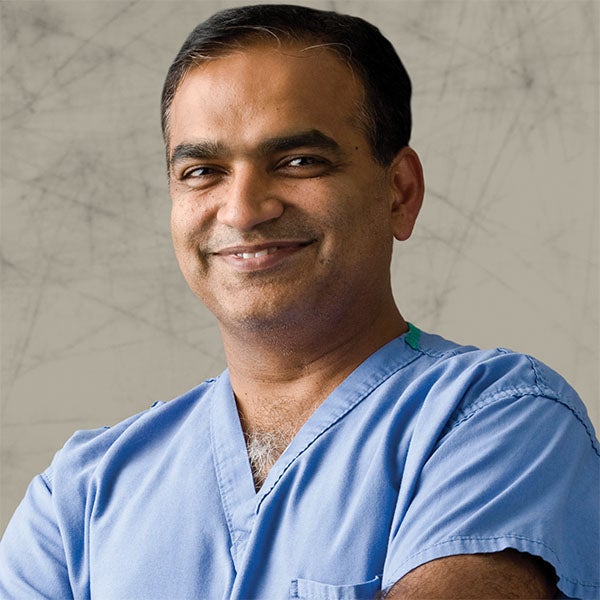Bariatric surgery: More than just weight loss
December 3, 2023Categories: Newsletter
Tags: Bariatrics
 Bariatrics is a medical specialty that helps severely overweight people lose excess pounds and improve their health with surgery and additional support.
Bariatrics is a medical specialty that helps severely overweight people lose excess pounds and improve their health with surgery and additional support.
To guide patients on their journey to effective weight loss, the Bariatric Center at Mercy Fitzgerald Hospital offers an array of services, including minimally invasive and robotic procedures, and traditional bariatric surgery. The Center also provides psychological and behavioral guidance, advice on nutrition and exercise, and seminars on weight management.
“Dealing with obesity is complicated,” says Kanika Trehan, MD, Mercy Fitzgerald bariatric and minimally invasive surgeon. “There’s a lot that science still doesn’t understand about the exact mechanisms. But we do know that obesity is a chronic disease with many factors.
“Plenty of people try hard to lose weight on their own and can’t do it,” she adds. “We want people who are struggling with obesity to know there’s more that goes into successfully treating it than just eating less and exercising more.”
Obesity is a serious health threat—it raises the probability of developing heart, lung, liver and bone disease, as well as diabetes and infertility. “Obesity also increases the risk for 14 types of cancers,” Dr. Trehan says.
Expert bariatrics care
 Mercy Fitzgerald’s Bariatrics Department is nationally accredited as a Bariatric Center of Excellence by the American College of Surgeons and the American Society of Metabolic and Bariatric Surgeons, the gold standard for bariatric surgical care.
Mercy Fitzgerald’s Bariatrics Department is nationally accredited as a Bariatric Center of Excellence by the American College of Surgeons and the American Society of Metabolic and Bariatric Surgeons, the gold standard for bariatric surgical care.
“All our surgeons are board-certified in general surgery, with specific expertise in bariatric procedures,” says Prashanth Ramachandra, MD, who is also a bariatric and minimally invasive surgeon at Mercy Fitzgerald. “We work with each patient to create a tailored, individual treatment plan based on what their weight-loss goals are, and their medical history and lifestyle.”
Many patients opt for surgical procedures, including gastric bypass and sleeve gastrectomy. (Both physically reduce the size of the stomach to aid in weight loss.)
Boosting overall health
Although people initially seek bariatric care for weight problems, what Dr. Ramachandra called its ‘positive side effects’ also improves their day-to-day quality of life.
“The amazing thing—and the reason we’re so passionate about treating obesity—is because if a patient loses even a small amount of excess weight, the majority of their health conditions will either become much less severe or even resolve entirely,” he says. “Seeing patients go through that transformation is extremely rewarding.”
Diabetes, sleep apnea, high blood pressure, high cholesterol, asthma and arthritis are just some of the health problems that may diminish or disappear after bariatric weight loss. “The psychological boost can be enormous, too,” Dr. Trehan says.
“Some patients tell us that before they had weight-loss surgery, they weren’t able to fit into an airplane seat or couldn’t find nice clothes to wear. Others say they used to feel very self-conscious going out in public. It’s a huge life change for them.”
That impact, Dr. Trehan says, is “one reason I love being a bariatric surgeon. It’s a ‘happy’ surgery, because people come to us when they decide they’re ready to make a positive change and improve their health.”
